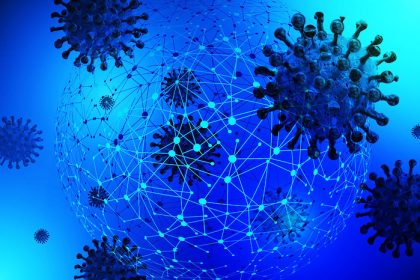The USA is fuelling calls for patent protection suspension of Corona vaccines. This is dominating all the main news with a view to the economy and politics. But what is the legal position on this, what would be the legal basis?

The USA supports a temporary suspension of patent protection for Corona vaccines, it was announced on Wednesday. The news was a shock to the economy – the share prices of the most successful vaccine manufacturers took a nosedive – and also politically: the EU signalled its willingness to talk, while the German government last night expressed its opposition to the proposal to suspend patent protection from the USA.
Above all the loud noise, little was said about the question: on what legal basis would this even be possible? After all, patent law is a vested right that is also recognised and applied worldwide.
Legal facts to the internationally heated debate
The legal basis for such a patent suspension would be the patent protection agreement of the World Trade Organisation (WTO), known as the TRIPS Agreement. This is because Article 31 of the WTO’s TRIPS Agreement explicitly provides for the obligation to grant compulsory licences to pharmaceutical companies – including for the production of generic drugs. However, this is not a “release” of patents, but the granting of licences under defined conditions.
Another process under WTO law is parallel importation. Parallel imports occur when a patented product has been lawfully traded on the foreign market and the host state imports it or has it imported into its own country without the authorisation of the patent holder. Whether such a parallel import is permissible is always determined by the so-called exhaustion; this is regulated in Article 6 TRIPS, according to which the question of exhaustion falls within the definitional power of WTO members.
In this respect, the most likely option would be compulsory licences, but these are only permissible in exceptional situations – “if there is a national emergency”. The determination of such a “national emergency” is, according to Art. 31 (b) TRIPS, within the definitional power of WTO members. The consensus principle is all the more necessary because the WTO dispute settlement mechanism with the Appellate Body has already been unable to take decisions since the end of 2019 – because it has fallen below the minimum number of three members required to take decisions. The appointment of a new member, however, requires the consent of all WTO members.
By the way, nor is there any agreement on the agreed sustainable development of trade and environmental policy. In such cases, the only objective so far has been multilateralisation at a later stage. No wonder, then, that the USA spoke of the “consensus principle” for its advance in its notification on Wednesday.
But back to compulsory licensing: The German BGH has also dealt with the issue of compulsory licensing several times, because the call for free or very cheap medicines and vaccines is not new, but comes around every year.
BGH and compulsory licence
The BGH expressed its opinion in July 2017 (X ZB 2/17) in the context of an HIV drug (a patent-law compulsory licence in summary proceedings) and developed this case law further in June 2019 (X ZB 2/19) in the context of a cholesterol-lowering agent. There was no public interest in granting a compulsory licence if there were equivalent medicines available, the BGH ruled in both cases. Only if other medicines available on the market do not have therapeutic properties in the treatment of serious diseases (to be proven by significant results of a clinical trial), or not to the same extent, can there be a public interest in granting a compulsory licence for a medicinal product.
Incidentally, such a compulsory licence is not a release of the patent; the patent holder must grant a licence, but the licensee must pay for it. This is because according to § 24 (6) German PatG, the patent proprietor is entitled to remuneration against the holder of the compulsory licence – which expressly also takes into account the economic value of the compulsory licence. The amount of this remuneration would be determined by the court when granting the compulsory licence. Furthermore, a temporal and also geographical limitation of the licence is stipulated.
Patent protection is a territorial right
In any case, the worldwide suspension of patent protection suggested in the current debate is not so simple. Patent law is territorial law; even in the case of international patents (keyword PCT application), protection can be applied for in almost all countries with a patent application – but this has to be validated individually in each country, according to the national patent laws. Any compulsory licences would also have to be adapted accordingly.
Even expropriation is debatted. For example, Italian law allows the state to take possession of any patent for reasons of public utility, i.e. to expropriate it, in return for compensation to be paid to the patent holder (Article 141 of the Italian Intellectual Property Code).
There is still no case law on the question of whether a pandemic declaration by the WHO can justify the possible expropriation of patents on Covid-19 drugs or vaccines.
WTO is international law – investment protection?
In principle, the WTO and TRIPS are part of the international legal order, which is basically only addressed to states. So if another state violates TRIPS – for example, by allowing a foreign country to infringe the patent rights for a domestic Corona vaccine with impunity or by making them available for generic production – this is not considered an infringement against the private company from the perspective of international law. Such a state would have to answer to the other WTO member states, which could call it to account before the WTO’s dispute settlement bodies. This happens time and again – but so far mainly because single countries from Asia or Africa have been accused of violating the TRIPS Agreement.
International law, moreover, does not recognise an independent property regime; an investment treaty under international law therefore basically means the exclusive rights of private enterprises created by national law.
However, there is as yet no case law in this area. Such an approach would be a breach of the dam and would have to be seen as the end of international investment protection.
In this context, we would like to remind you of Wednesday’s news from the USA: the temporary suspension of patent protection for Corona vaccines is being advocated – but this does not read like the release for expropriation and also not like the abandonment for international investment protection.
Statistics on mRNA patents
In addition, in the case of the Corona vaccines, the issue of patent protection suspension also has an innovative geopolitical component. This is because the successful mRNA vaccines in particular are based on a new biotechnology that is being applied in real therapy for the first time with the Corona vaccines. The research for this has been done by the vaccine manufacturers for many years. But then mRNA research was only a niche topic. This is because mRNA is extremely short-lived by nature.
However, a method has been known and patented for years that can stabilise introduced mRNA very well, namely via the mRNA caps. This is complemented by a special lipid layer. BioNTech developed the stabilising mRNA technology years ago, which also enabled the outstandingly rapid development of a very effective corona vaccine.
There were just over 100 patent families at the end of 2020 (according to searches from the INPADOC international patent collection) whose claims are limited to vaccines encoded by mRNA. Moderna (USA), GlaxoSmithKline (GSK, from the UK) and the two German companies BioNTech and CureVac together own almost half of all patent applications for mRNA vaccines. In principle, all research into mRNA therapy was aimed at cancer treatment; its suitability as a corona vaccine was developed almost in passing.
If one assumes that therapies with mRNA will multiply in the next few years, a large part of the relevant patents will be held by European companies. This may also play into the current debate and is also somewhat reminiscent of the Europe versus USA patent dispute over the CRISPR gene scissors, also a new key technology in the fight against cancer, which won the Nobel Prize in 2020.
Interestingly, the USA allows direct patenting of DNA, whereas the EU does not; accordingly, there are already many US patents on genetic sequences. But unlike DNA, therapies with RNA do not work without corresponding stabilisation and production techniques – and this is a very complex area of technology.
mRNA Vaccine
Indeed, mRNA technology requires more complex and specialised manufacturing than the common notion of just mixing a few active ingredients with a few salts. According to a Pfizer spokeswoman yesterday, the BioNTech/Pfizer vaccine requires 280 components (involving 86 suppliers) to be processed in complex specialised facilities and with specially trained personnel.
This alone raises the question for which part of the 280 components the patent protection should be suspended – i.e. the compulsory licence. And there is also the practical question of whether less specialised countries could benefit at all from such a compulsory licence.
Even the US based Moderna said, that free patents on the pure RNA wouldn’t help; rather, the mRNA technology is decisive but specialised technique. This, by the way, did not prevent Moderna from granting “free and gratuitous use” for its own 7 US patents on RNA during the pandemic with great publicity. But, pure mRNA as such is too short-living and thus unstable for therapies.
No wonder, then, that the US statement on the patent suspension directly stated that such a step would be “time-consuming” due to the consensus principle and the complexity of the matter.
Final
The proposal from the USA contradicts the idea of international investment protection, which has been inseparably associated with the USA until now.
There is also no relevant case law on the question of whether a pandemic declaration made by the WHO can justify compulsory licensing or even the possible expropriation of patents on Covid 19 drugs or vaccines. Nor is there any case law on the aspect of whether a compulsory licence can be demanded at all with reference to Article 31 in the WTO TRIPS Agreement if a whole komplex technology is involved – as in the case of the Corona vaccines with mRNA.
Ultimately, the national courts would have to decide – and that would be very “time-consuming” indeed.
Would you also like to protect or defend your invention?
Our attorneys have many years of expertise in patent law as well as in the entire field of intellectual property and are entitled to represent you before any court – in Germany and also internationally.
Please feel free to contact us if you are interested.
Sources:
Image:








Leave a Reply